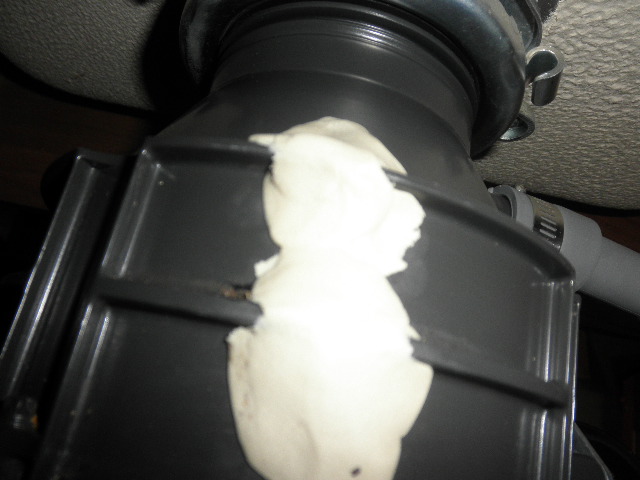Useful Methods for Fixing a Dripping Garbage Disposal
Useful Methods for Fixing a Dripping Garbage Disposal
Blog Article
Listed here below yow will discover a bunch of good material involving Why Is My Garbage Disposal Leaking From the Bottom?.

Garbage disposals are essential cooking area devices that aid in taking care of food waste successfully. Nonetheless, a dripping waste disposal unit can be a discouraging and unpleasant issue to take care of. Luckily, lots of leakages can be taken care of quickly with a few easy steps. In this write-up, we will review how to fix a dripping garbage disposal efficiently.
Intro
Waste disposal unit are installed under kitchen sinks and are created to shred food waste into smaller items, enabling it to travel through the plumbing system conveniently. While these tools are usually dependable, leaks can occur over time due to damage, loose links, or damage to the system.
Common Causes of Leakages in Rubbish Disposals
Worn Seals and Gaskets
Seals and gaskets play a crucial role in preventing water from leaking out of the garbage disposal. Gradually, these parts can weaken, resulting in leaks around the disposal system.
Loose Links
The connections between the garbage disposal and the pipes system can come to be loose with time, triggering water to leak out throughout procedure.
Cracks or Openings in the Disposal Device
Physical damages to the garbage disposal, such as fractures or holes in the housing, can likewise result in leakages.
Determining the Source of the Leak
Prior to attempting to repair a dripping garbage disposal, it is necessary to recognize the source of the leak. This can generally be done via visual evaluation or by performing simple examinations.
Visual Assessment
Examine the waste disposal unit system very carefully for any indications of water leak. Pay very close attention to locations around seals, gaskets, and link factors.
Testing for Leakages
One means to evaluate for leaks is by running water via the disposal device and looking for any kind of noticeable indications of leak.
Devices and Materials Needed for Fixing a Dripping Garbage Disposal
Prior to beginning the repair work process, gather the necessary devices and products, consisting of a screwdriver, adjustable wrench, plumbing's putty, replacement seals or gaskets, and epoxy or patching material for fixing splits or openings.
Step-by-Step Guide to Taking Care Of a Leaking Waste Disposal Unit
Switch off the Power
Prior to attempting any repair work, guarantee that the power to the waste disposal unit device is shut off to stop the risk of electric shock.
Situate the Leakage
Identify the precise place of the leak and determine the reason.
Tighten up Links
Make use of a wrench to tighten any loose connections between the disposal device and the pipes system.
Change Seals or Gaskets
If the leak is due to worn seals or gaskets, remove the old elements and replace them with brand-new ones.
Patching Fractures or Holes
For fractures or openings in the disposal system, use epoxy or a suitable patching product to seal the broken area.
Testing the Waste Disposal Unit After Repair
As soon as the repair work is complete, examine the garbage disposal by running water through it to ensure that the leakage has actually been dealt with.
Preventive Upkeep Tips to Avoid Future Leaks
To avoid future leakages, it is essential to execute regular upkeep on your garbage disposal. This consists of keeping it tidy, preventing putting non-food items or difficult items down the disposal, and regularly looking for leakages or various other issues.
Conclusion
In conclusion, fixing a leaking waste disposal unit is a relatively uncomplicated process that can be finished with fundamental devices and products. By complying with the actions detailed in this article and exercising precautionary upkeep, you can maintain your garbage disposal in good working problem and avoid costly repair work in the future.
What to Do About a Leaking Garbage Disposal
A leaking garbage disposal often goes unnoticed until you confront a sopping cabinet, a foul-smelling puddle, or an audible drip-drip-drip from the unit. The fix can be frustrating, too, because the leak can stem from a number of components in the system. Fortunately, with a little sleuthing, you can zero in on the leak and—depending on the exact location—stop the icky oozing and repair the component that caused it. Worst case scenario, if it turns out that the garbage disposal must be replaced, installing a new one is a reasonable do-it-yourself task for those with basic plumbing skills. Read on to keep the cash you’d otherwise hand over to a pro.
Prepare to find the leak
Prior to testing the garbage disposal for leaks, unplug it at the wall outlet and turn off the power from the breaker box to prevent electrical shock. Then insert a watertight sink stopper into your sink drain and wipe the unit dry with a clean cloth. In any handy container, mix a few drops of food coloring into a few cups of water, and pour the dyed water onto the sink stopper to help you locate the leak.
Investigate the source
the top, where the disposal meets the sink drain the side, where the dishwasher hose or main drain pipe connects to the disposal or the bottom of the unit Inspect each of these locations while gliding a light-colored rag over the unit; the dyed water will readily show on the rag and reveal the location of the leak. If a leak isn’t immediately apparent, remove the sink stopper and pour a few more cups of dyed water down the sink drain, then check for leaks again. Leaks near the top of the unit are more likely to show themselves while the sink is plugged, while side and bottom leaks are more noticeable while the sink is unplugged.
The metal sink flange that sits directly inside the sink drain is typically sealed around the top with plumber’s putty (a clay-like sealant) and then secured from under the sink with bolts. If the plumber’s putty deteriorates, or the bolts loosen, the flange can no longer form a watertight seal between the sink drain and the disposal—which could cause a leak at the top of the unit.
To reseal the leaky flange, you must first detach the garbage disposal. Start by loosening the screws securing the main drain pipe to the disposal, then loosen the screws in the metal clamp securing the dishwasher hose to the disposal and detach the drain pipe and dishwasher hose from the disposal. Loosen the screws in the mounting ring that connects the disposal to the metal mounting assembly beneath the sink, then pull down the disposal and carefully set it on a clean, dry surface. Loosen the bolts in the mounting assembly with a wrench, then pull down the mounting assembly and set it near the disposal.

I found that post about How to fix a pretty consistent leak from my garbage disposal while doing a search on the internet. Sharing is good. You just don't know, you may very well be doing someone a favor. I appreciate reading our article about Why Is My Garbage Disposal Leaking From the Bottom?.
This Site Report this page